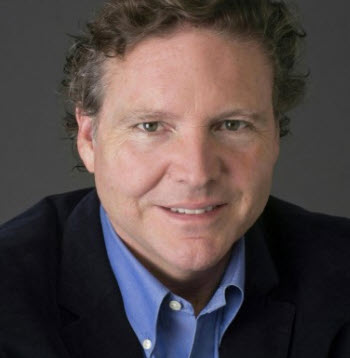Alfred Sloan’s My Years with General Motors was an immediate success and is considered one of the best management books written by CEOs of his era. Before his book, we’d probably have to go back to Henry Ford’s autobiography to find a management book of this popularity. I now believe Harvey Firestone’s book from 1926 is as good, if not better than Ford’s and Sloan’s. The title is Men and Rubber, a republished book by Latticework Publishing.
Episode Highlights
- The book’s origin story
- A case for reading business history
- Comparisons to Benjamin Franklin, Peter Drucker, Warren Buffett, and Alfred Sloan
- The primary Firestone storyline: 1900-1920
- Rapid growth in sales, profit, and employees
- Firestone and the management of one’s self
- Firestone’s views on selling
- Firestone’s opinions on how to treat employees and the stock savings plan
- The drama of 1920 and Firestone’s new title for a few days
- Great quotes on business and financial planning
- Ford’s vagabonds
Partial Firestone Timeline
- 1900 – Firestone Tire & Rubber is chartered with $45k in capital to make solid tires for carriage wheels
- 1902 – 12 staff members and $150k in sales
- 1903 – $230k in sales
- 1904 – $460k in sales with profits of $71k (15% profit margin)
- 1905 – First meeting with Ford to supply two thousand sets of tires – Firestone undercut the competition
- 1906 – sales reach $1 million
- 1907 – sales of $1.6 million on 40k tires vs. 28k a year earlier
- 1910 – sales exceed $5 million; 168k tires sold
- 1919 – 4 million tires sold and $9 million in profit
- 1920 – sales reach $115 million
- 1924 – all debt is paid in full
I regard those first twenty years only as a period of preparation for the real test of 1920. A business is not a business until it has been hardened by fire and water.
Harvey Firestone – Men and Rubber
General Quotes on Business by Harvey Firestone
- “Business is not a game. Business is not a science—there are too many unknown and unknowable factors ever to permit it to be a science.”
- “The greatest pleasure is in doing something to help others to help themselves … finally, there is the supreme satisfaction of accomplishment …”
- “The single reason for the existence of any business must be that it supplies a human need or want, and, if my experience is worth anything, a business which has this reason for its existence will be bound in the end to prosper if thought be put into it.”
- “Having a surplus is the greatest aid to business judgment that I know …”
- “The test of a business man is not whether he can make money in one or two boom years, or can make money through the luck of getting into the field first, but whether in a highly competitive field, without having any initial advantage over his competitors, he can outdistance them in a perfect honourable way and keep the respect of himself and of his community.”
Firestone on Planning and Budgeting
“I found it necessary to have a budget and to have it for a year ahead, but my own common sense taught me that the human being is yet to be born who can make a rigid plan covering twelve months in the future without running into the danger of suddenly operating a plan instead of a business. If it were possible to plan for a year ahead, then there would be no need for judgment or management—any question that came up could be settled by referring to the plan. That is the trouble with a plan, especially a carefully considered plan. We are so likely by tacking the name ‘‘plan’’ on what is only a guess to give more dignity and weight to the plan than it deserves. On the other hand, without any plan at all, the necessary constructions and improvements cannot be made in the most economical fashion and, above all, the money requirements cannot be arranged for in advance.”
“The budget is the general guide, but is it nothing more than that. The budget which actually controls us only covers only four months ahead. We always know just about where we are going to be in four months, and although this is not a long period, it is the longest period over which I have been able to obtain data that can be reduced to a statement which is not merely a conjecture.”
The only danger in mapping the future lies in making the plans inflexible. No one can know exactly what will happen next month, let alone next year, but reasonable plans can always be made, and then they can be changed as circumstances require. A too rigid plan may be worse than no plan at all.
A soundly financed business ought to have enough free money of its own to be out of the banks during the dull period of the year and reserve its bank borrowing for the busy seasons.
Bookclub Questions
I would have enjoyed reading this book in the context of a larger book club group of 10-12 participants. If you have that opportunity, here are ten questions to consider after everyone has completed the book. The questions are in no particular order.
- How would you describe Harvey Firestone personally and professionally? Firestone was compared to Franklin, Drucker, Buffett, and Sloan on the podcast. Do you agree?
- Was Firestone a great leader, or was he just lucky? Was he born at the right time and riding on Ford’s success? Before responding, research Firestone’s impressive innovations over the years.
- What do you think of Firestone’s opinion on star salespeople? Do you agree with it? Why or why not?
- The writer stated, “Having a surplus is the greatest aid to business judgment that I know.” What does this line mean to you? What did Harvey mean?
- I’m wondering if Firestone would be an excellent personal financial advisor today. Remember his line about big houses? “In a few cases, a big house is built just as an advertisement that one is rich.” Do you agree with him?
- Firestone stated, “A soundly financed business ought to have enough free money of its own to be out of the banks during the dull period of the year and reserve its bank borrowing for the busy seasons.” Explain what this means in your own words. Do you think that is happening in your business?
- Firestone stated, “A business is not a business until it has been hardened by fire and water.” Be prepared to give some examples of businesses you have worked in where this is a truism.
- Firestone wanted to control his supply chain, but rubber was not grown in the U.S. because climate and soil conditions made that impossible. After Harvey’s death, Firestone became the first tire company to produce synthetic rubber. If applicable, what steps is your business taking to control its supply chain?
- Firestone stated, “The management of one’s self, which gets down to controlling one’s own time and distinguishing the important from the unimportant, comes only from experience.” Is he right? Would you add anything to his opinion?
- I thought Firestone treated his employees based on how he would want to be treated. His leadership was also well ahead of its time. Examples included good working conditions, paying at rates higher than other employers, supervisory training, and stock savings plans. How does the business you work in compare to Firestone’s?
Episode Pairings



Dirk Smillie Photo credit: Elena Siebert

Leave a Reply